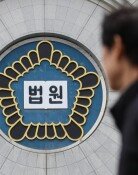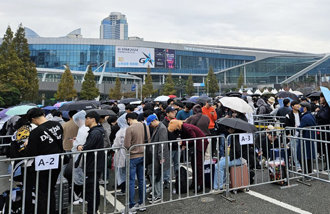Exit Polls Show Inaccuracy
Exit polls conducted by major networks, such as KBS, MBC, SBS and YTN, have failed to match Wednesdays parliamentary election results in 16 to 29 constituencies.
Broadcasting companies forecast that the Grand National Party would clinch at least 154 parliamentary seats and at most 184. However, the GNP turned out to have secured only 153 seats. Some broadcasters made a public apology for their imprecise exit poll results at the end of election-related programs on Thursday morning. However, it was by no means the first time for the broadcasters to make an apology for their inaccurate predictions as they have made erroneous predictions for four general elections in a row.
Each broadcaster predicted the outcome of the general elections with the help of exit polls and telephone surveys, which cost them around 1.2 billion to 3.6 billion won. However, as more votes were counted later in the evening, people began to learn that many of the networks predictions were inaccurate. Some even argue that exit polls are nothing but a waste.
Opinion poll experts say that the broadcasters ended up making wrong predictions again, largely because voters constantly change their mind over to whom they are going to vote for in general elections. The broadcasters overall employed unreliable polling method and failed to read the minds of voters over the proportional representation system, according to them.
▽ How inaccurate was each network?
According to an analysis that compared each networks poll results with the actual results of the general elections, a considerable number of candidates who were predicted to win by poll results actually lost. On this regard, SBS made the most number of wrong predictions, or 15, followed by YTN with six and KBS and MBC with five each.
Even if the results of the elections remained unchanged, the projected margins between the winner and the runner-up were largely inaccurate in many areas. Eight candidates that were predicted to win by the KBS and MBCs joint survey won the elections in a very tight race within the margin of error. On the contrary, three candidates who were predicted to fight a fierce battle within the margin of error won the elections by a large margin. The number of predicted surefire victories that turned out to be tight races was nine by SBS and 16 by YTN. The number of predicted tight races that turned out to be landslide victories was 10 by SBS and seven by YTN.
▽ Wrong predictions for the proportional representation system
KBS and MBC predicted that the GNP would garner 50.3 percent of public support and secure 27 to 30 seats under the proportional representation system, while the Pro-Park Alliance would secure four to six seats with 8.3 percent of public support. However, the results of the elections were far different from their projections as the GNP was able to secure only 22 seats, while the PPA clinched eight seats. SBSs projections were also inaccurate as they forecast the GNP would secure 25 to 27 seats, while the PPA would secure five to seven seats. However, the projections of YTN were very close as it estimated that the GNP would secure 22 seats and the PPA seven.
Kim Deok-yeong, CEO of Korea Research, said, A large number of people who voted for Uri Party candidates in the 2004 general elections voted for the Democratic Labor Party for proportional representation. Similarly, many of those, who voted for GNP candidates for their district, voted for the PPA this time. However, many of the telephone survey respondents expressed support for only the party that the candidate they supported belongs to. This created a disparity between the results of actual votes and the results of the phone surveys.
raphy@donga.com







